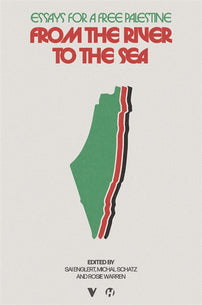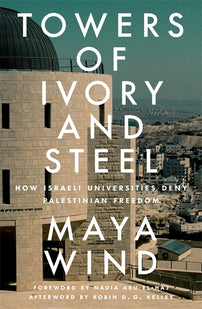Defending Racist Speech Will Not Free Palestine
The repression of pro-Palestine speech since October 7 has sparked new demands from the Left that free speech be protected – including bigoted speech on the Right. In this essay, Sneha Krishnan argues that there can be no equivalence drawn between racist and anti-racist speech.

The cruelty and violence being meted out to the Palestinian people is, in this moment, spectacularly visible, as Israel’s genocide devastates Gaza, killing over thirty-five thousand since October 2023. As Western governments continue to fund this killing, Palestinians persist in asserting their rights to a future in their land. Meanwhile, the global movement in solidarity with Palestinians has grown rapidly. Students around the world have set up encampments on university grounds to demand a ceasefire, and that their institutions disinvest from Israel’s genocide and occupation while committing resources to rebuilding Gaza’s destroyed universities. Simultaneously, we are also witnessing a dangerous climate of institutional repression targeting these and all protests in defence of Palestinian life. Meanwhile, in the tired arena of the continuous culture wars in the UK, these acts of international solidarity have reignited claims on free speech that often do little more than reduce political struggles to talking points.
In a recent essay, Amia Srinivasan does just this as she defends her choice to sign a letter against an ongoing investigation at Cambridge of Nathan Cofnas, a philosopher, who describes himself as a ‘race-realist’. Cofnas’s work sees racial difference as biological, and different races as inherently unequal. Srinivasan argues that if we want pro-Palestine academics to be able to speak freely, we must defend the right to expression of the likes of Cofnas. This instrumentalization of Palestine to defend Cofnas’s racism as ‘free speech’ dangerously accepts the right’s premise that contestations over expression occur in a marketplace of ideas, untainted by histories of colonialism.
To argue equivalence between Cambridge’s anti-racists, who sought that Cofnas’s work be reviewed, and the anti-Palestine reactionaries who bay for the blood of scholars like Jodi Dean is to conjure up a world without a history, and without power. Anti-Palestinian racism is sustained by a liberal world order that distributes its privileges – its human rights – unequally. The human subject at the heart of liberalism is, as Zakiyyah Iman Jackson shows, drawing on the work of Sylvia Wynter, formed by histories of anti-Blackness and settler colonialism. Cofnas’s ‘race-realism’ is no more than a twenty-first century iteration of the racial science that was formative to liberal imperial modernity and underlies the occupation of Palestine.
[book-strip index="1"]
Srinivasan’s essay further assumes that assertions of the inalienable rights of the Palestinian people are a form of controversial speech. Her logic accepts that it may offend some to advocate for Palestinian sovereignty and return, just as antiracists are affronted by Cofnas. The difference is that it is both unfounded, and racist to assert that intelligence is lower in Black communities as Cofnas does. On the other hand, Palestinians’ rights to self-determination, sovereign nationhood, and return are enshrined in the international law, and recognised by a resolution of the United Nations General Assembly in 1973. Activists and scholars who insist upon this framework of inalienable rights are persecuted not because what they are saying is especially radical but because liberalism operationalises Palestine at the limit of civil discourse. To pit the Palestinian struggle, and the ongoing genocide, against anti-Black speech in a free-market arena of individual utterances reifies this logic. It reduces Palestinians’ collective suffering and continuous dispossession since 1948 to a debate, whilst throwing Black communities under the metaphorical bus.
Shoring up the effects of settler colonialism and anti-Blackness in everyday academic practice is thankless, yet Cambridge’s antiracist students have been persistent. Cofnas’s investigation is a result of their escalation following a February 2024 blog post, in which he argued that Harvard would have no Black professors if the university hired on merit alone. If investigation of this blatant racism is censorious as Srinivasan argues, should Cofnas’s students instead simply suffer the epistemic violence of his biological racism in the classroom as they “debate” him? To require this is the definition of racism as distraction: leaving us circling the drain, remaking anew arguments made a hundred years ago.
This question of academics’ ethical obligation to students persists into Srinivasan’s praise of the Palestine solidarity encampment at Oxford for its non-disruptiveness. She suggests that any disorder in the camp should be subject to normal, albeit mild and individualised, procedures of university discipline. The distinction between learning and disruptive protest that this sets up is, by the measure of any radical pedagogy, false. The students in Amsterdam, who erected a barricade, are no less engaged in an intellectual and material project of solidarity with Palestine. Indeed, all encampments show that business as usual is the peace of Omelas: the camps draw attention to the child being beaten at the heart of the shining city. Students who have escalated their protest at Columbia, in UCLA, and in Cambridge demand that we not dismiss – as “absurd” in the British Prime Minister’s words – the Palestinian people’s struggle and solidarity. They also demand from faculty that we move with them to ask how the comforting order of our normal academic life is enabled by the destruction of Palestinian life and learning. In our encampments, we sit in protest like Antigone because the law has failed us. Appealing to the colonial logic of liberal order will not save us.
[book-strip index="2"]
Finally, why are we so attached to an ideal of free speech in a world where it is, for most people, no more than a cruel fiction? In the UK, the far-right’s capture of the state forces us to platform fascists in the name of free speech, even as Prevent legislation stifles critiques of the state’s most extreme policing and security agendas. Free speech claims from the left operate on the assumption that if progressives platformed every odious eugenicist, the right would have to – within a liberal logic, where everyone is accorded the same privileges – allow pro-Palestinian thinkers to speak freely. This only works where liberalism is free of its colonial baggage, where the figure of the human is stripped of its history and substantively universal. Instead, we are left repeatedly telling the racists why our histories count, convincing them of our humanity on their terms, wasting so much time that liberation is always out of reach.
The encampments everywhere are powerful because by insistently speaking the language of Palestinian liberation, they strengthen the rights that materialise Palestinian futures beyond settler colonialism and genocide. In this they recall a mid-twentieth century world of Afro-Asian solidarity that linked Black, Palestinian, and Asian anticolonial struggles. They also reimagine the university as a place of learning and scholarship rooted not so much in a liberal individualist right to free speech, but in collective political education.
To see the full collection of testimonials, check out the Palestine Uncensored series' main page.

